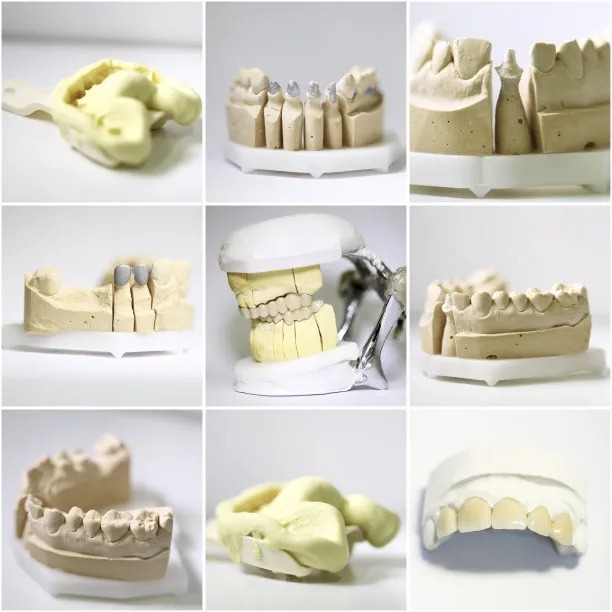The Importance of Dental Care and the Process Involved in Extracting a Tooth for Better Oral Health
Summary: Dental care plays a crucial role in maintaining good oral health and preventing various dental issues. This article discusses the significance of regular dental check-ups, daily oral hygiene practices, and the impact of diet on dental health. Furthermore, it delves into the detailed process involved in tooth extraction, emphasizing the importance of professional intervention and the steps taken to ensure safety and pain management. By understanding these aspects, individuals can appreciate the value of dental care and make informed decisions about their oral health. Throughout the article, practical tips are provided to enhance dental care routines, and insights are shared on how proper care can lead to long-lasting dental health.
1. The Essential Role of Regular Dental Check-ups

Regular dental check-ups are fundamental for maintaining optimal oral health. These examinations allow dentists to identify potential problems before they escalate. Early detection can prevent issues such as cavities, gum disease, and even oral cancer, ensuring timely treatment and intervention. With an estimated 90% of dental diseases being preventable, check-ups serve as a proactive approach to oral care.
During these visits, dental professionals perform cleanings to remove plaque and tartar that regular brushing may miss. This is vital in preventing cavities and gum disease, which can lead to more severe health problems if left untreated. Additionally, dentists often employ diagnostic tools such as X-rays to detect hidden issues, ensuring comprehensive care.
Moreover, check-ups provide an excellent opportunity for patients to discuss any concerns regarding their oral health with their dental professional. This open communication fosters trust and encourages individuals to take an active role in their oral hygiene practices, paving the way for better health outcomes.
2. Daily Oral Hygiene Practices for Healthier Teeth
Incorporating daily oral hygiene practices is essential for sustaining good dental health. Brushing teeth at least twice a day with fluoride toothpaste helps remove food particles and plaque buildup, significantly reducing the risk of cavities and gum disease. It is also important to replace toothbrushes every three to four months to maintain effective cleaning.
Flossing is another crucial aspect of daily oral care often overlooked. Flossing removes debris and plaque between teeth where toothbrush bristles cannot reach, promoting healthier gums and preventing periodontal disease. Establishing a routine that includes both brushing and flossing can drastically improve oral hygiene.
Additionally, using mouthwash can provide an extra layer of protection by reducing oral bacteria and freshening breath. Selecting a mouthwash that contains antibacterial properties can greatly enhance daily oral care, leading to a healthier overall mouth environment.
3. The Impact of Diet on Oral Health
A balanced diet significantly influences oral health. Foods high in sugar can contribute to tooth decay as they feed harmful bacteria that produce acids damaging tooth enamel. Limiting sugary snacks and beverages can dramatically decrease the likelihood of cavities developing.
On the other hand, incorporating foods rich in calcium and phosphorus, such as dairy products, leafy greens, and nuts, can strengthen teeth and bones. These nutrients aid in remineralization, which helps repair early stages of decay. Furthermore, crunchy fruits and vegetables, like apples and carrots, can naturally cleanse teeth and stimulate gum health through their fibrous texture.
Staying hydrated is equally vital for oral health. Water helps wash away food particles and bacteria while preventing dry mouth, which can lead to increased plaque buildup and tooth decay. By ensuring a nutrient-rich diet and proper hydration, individuals can significantly bolster their oral health and achieve a brighter smile.
4. The Dental Extraction Process Explained
Tooth extraction may be necessary for various reasons, including severe decay, overcrowding, or infection. Understanding the process can alleviate anxiety for patients facing this procedure. Initially, the dentist evaluates the tooths condition through X-rays and a thorough examination, considering all alternatives before deciding on extraction.
Once a decision is made, the extraction process typically begins with anesthesia to ensure the patient’s comfort and minimize pain. Depending on the tooth’s position and complexity, it may require simple extraction using forceps or surgical extraction, necessitating an incision in the gum.
Post-extraction care is equally important to ensure proper healing. Dentists provide instructions on managing pain and preventing infection, which may include taking prescribed medications and applying cold compresses to reduce swelling. Following these guidelines is crucial to achieving a smooth recovery and maintaining overall oral health.
Summary:
In conclusion, the importance of dental care cannot be overstated. Regular professional check-ups, diligent daily hygiene practices, and a balanced diet all contribute to the prevention of dental issues and the promotion of oral health. Understanding the tooth extraction process prepares individuals for potential procedures and emphasizes the value of professional dental care. These combined efforts pave the way for lasting dental health and well-being.
This article is compiled by Vickong Dental and the content is for reference only.



